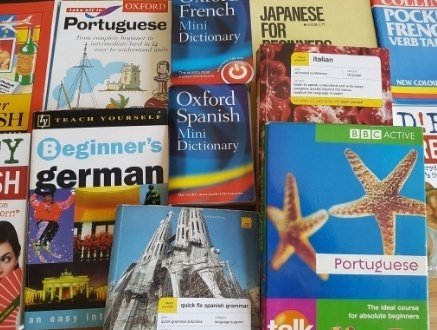
What is it like to study abroad?【interview】
"Not sure if I want to study abroad.”
"Not sure if I could live abroad.”
"Want to know what Japan looks like from foreign perspectives".
I wrote this article for those who have such thoughts.
Honestly speaking, I have traveled abroad only with my parents and brother and never studied abroad or stayed for a long period of time.
So, I interviewed Elaine, a friend of mine living outside of Japan, to figure out what it is like to study and to live in a foreign country.
This is because, I believe, some of the things you gain from actual experiences are universal.
After reading this article, you will surely want to challenge yourself to go abroad!
We did this interview online in English.
日本語版「留学して変わったことは?【インタビュー】」はこちら
1. Elaine Basic Information

Malaysian of Chinese descent.
Lives in Kuala Lumpur.
Currently working at a bank while attending a doctoral course. She specializes in finance.
From April 2014 to January 2015, studied economics in a university located in Chiba Prefecture.
Met Jerry Watanabe in one of the general education classes there.
A kind person who taught Jerry Watanabe Malay and Chinese languages then.
2. About Malaysia

Area
About 330,000 square kilometers (about 0.9 times that of Japan)Population
32.7 million (according to Statistics Malaysia, 2020)Capital
Kuala Lumpur or KLEthnicity
Malays (69.6%), Chinese (22.6%), Indians (6.8%), Others (1%) (Malaysian Bureau of Statistics, 2020)Languages
Malay (national language), Chinese, Tamil, EnglishReligion
Islam (61.3%), Buddhism (19.8%), Christianity (9.2%), Hinduism (6.3%), Confucianism, Taoism, etc. (1.3%), othersNumber of foreign students in Japan
2,670 (as of December 2020)Number of Japanese residents in Malaysia
30,973 (as of October 2020)Number of Malaysians in Japan
10,996 (end of June 2020: Ministry of Justice statistics)
※Source: https://www.mofa.go.jp/mofaj/area/malaysia/data.html#section1
3. To be honest, I was not interested in Japan.

First of all, why did you choose a Japanese university in the first place?
To be honest, I wasn't that interested in Japan. But I do have a chance to choose Japan or Korea as the destination. And Korea looked interesting to me because of its K-pop popularity.
But the complexity of its application was so beyond my imagination that I gave up.
Was it complicated?
Yes, it was. Even when I applied to study in Japan, I had to go through many counters in my university. But when it came to applying to study in Korea, I couldn't even find the first contact…
So, you were somewhat reluctant to go to Japan at first?
Not really. Japan is a technological advance nation
and the world's 3rd largest economy. As an economics major, there are many things that I can learn from the Japanese such as the attitude and morality.
Plus, my overseas study in Japan was sponsored by the Japanese government, so all tuition and travel expenses were free!!
I envy you! If that's the case, the application rate must have been pretty high, right?
Actually, it wasn't that bad. There were many people who wanted to study abroad, but the actual application was another matter.
In particular, if you want to study abroad, you have to pay an extra year's tuition to my university, and that seems to be difficult for many students in terms of finance. And one more reason is….
What is it?
It's too much paperwork to do.
Did your university seriously want to send its students abroad!?
4. Japanese education encourages creativity.

From April 2014 to January 2015, you studied at a university in Chiba Pref.. How was the life?
I love Japanese four seasons! Especially autumn! The red and yellow leaves were beautiful, and I was very impressed with the colors of the university campus!
It was also nice to see the snow! In Malaysia, it's summer all year round, so you'll never see it. Even in March, it's over 30 degrees Celsius and I'm wearing a tank top.
What else do you like about Japan?
I was deeply relieved that Japan is safe! I felt this immediately after arriving at Narita airport.
How come?
My friend and I had to spend the night at the airport to wait for the personnel from the university to pick us up.
We were anxious at first, because when in Malaysia, some bad guys would have put drugs in our luggage while we were sleeping.
Actually, there was a guy in Malaysia who was caught with drugs in his luggage and was sentenced to death in Singapore!
But, in Japan, the security guards kept looking around frequently, which was really nice and made us less nervous.
Also, Japanese people are much closer to each other than Malaysians. People in Japan have a closer sense of distance than Malaysians, and are not afraid to be close to strangers.
Maybe it's because Japan is much safer.
Cool! And, how was the school?
I have to say Japan is an interesting country, isn't it? They make all kinds of new machines, but don't use them in their own country.
Is this because they would prefer to use traditional ways to develop their children's creativity, right?
Using whiteboards, paper books, etc. allows for more freedom of thought than digital educational devices.
Maybe, that would be one of the reasons.
How many languages do you speak?

What else did you notice about Japan?
I think the Japanese look up to Westerners a lot more than to Asians. I mean they are more polite to Westerners.
For instance, one lady has a PhD in English, but she couldn't teach English at university because she was from Asia. They don’t care about her abilities or specialties. What’s the point?
Also, most teachers in English conversation schools look Western in their advertisements.
English conversation schools… You know there used to be many people in Malaysia who said, "It's great that you can speak English!” and “It's great to be a Westerner!”
But that was only up to my parents' generation.
Nowadays, almost everyone can speak English, so it's not seen as a special skill, which makes Malaysian people bother not to go to English conversation schools.
How many languages do you speak?
Five. English, Malay, Chinese, Cantonese, and
※Chaozhou language.
Teochew is a dialect of the Chinese language with many speakers in Shantou and Chaozhou cities in the eastern part of Guangdong Province, China, and in Southeast Asia such as Thailand, Malaysia and Singapore.
So many languages! It is also interesting to count a regional dialect like Chaozhou as a distinctive language.
From my standpoint, Japanese wouldn't say, "I speak Tsugaru,” for one example. It's a different way of looking at language.
What do you think are advantages of being able to use so many languages?
It would be the ability to access more information. You can read more websites, and find more people to exchange information with. Don't you think so?
Yes, I do. And I suppose reading in English gives me a different feelings from reading in Japanese.
Yes! Different languages give you different sensations when you read, don't they?
For example my favorite literature is Sherlock Holmes, because I can enjoy the earlier style of the English language.
What has changed after studying?

How do you think you changed before and after studying abroad?
The most important thing is that I have become more confident in myself.
Before coming to Japan, I used to think that I was below average. But after mingling with international students, I found that we are actually not as worse as what we think of ourselves.
You thought you were doing better than Japanese students.
Don’t get me wrong. I don't mean that Malaysians are better than Japanese. It's just that if they mingle with only their friends who are like them, people from any country will think that they are below average.
In particular, Asian descents tend to focus too much on what they are not good at or what they are unable to.
Sounds encouraging!
So even if you don't study abroad, you want to focus more on your strengths.
When I was back in Malaysia, I said to my friends, "you're all great enough already. Have confidence!” But it seemed hard for them to believe me. I keep telling them anyway.
Lastly, what would you like to say to Japanese people who are learning English now?
Unlike my parents' generation, we now have the internet, so just study more!
Thank you!
Studying abroad has given me a lot of confidence.

In this article, I interviewed Elaine, who lives in Malaysia, and asked her
・Why you chose Japan?
・Impressions of Japan
・Her own view of language
・What has changed after studying abroad
The point that impressed me the most was "studying abroad gave me confidence.”
One of my friends who had visited 30 countries once said, "I have learned to accept myself as I am by being exposed to various values."
It seems that living in foreign countries has great impacts on the way of thinking. I would love to experience that myself.
In the future, I would like to continue interviewing people from other countries, so please keep in touch with me.
I would like to express my deep and sincere gratitude to Elaine for accepting my interview and patiently waiting for my slow writing.
人に言われたことを真に受けやすい、何でも馬鹿真面目に考えてしまう、そんなボクのように不器用な人でも楽しく生きられるような情報を発信していきます。まだnoteでアウトプットを始めたばかりですが、がんばります!サポート、よろしくお願いします(^o^)
